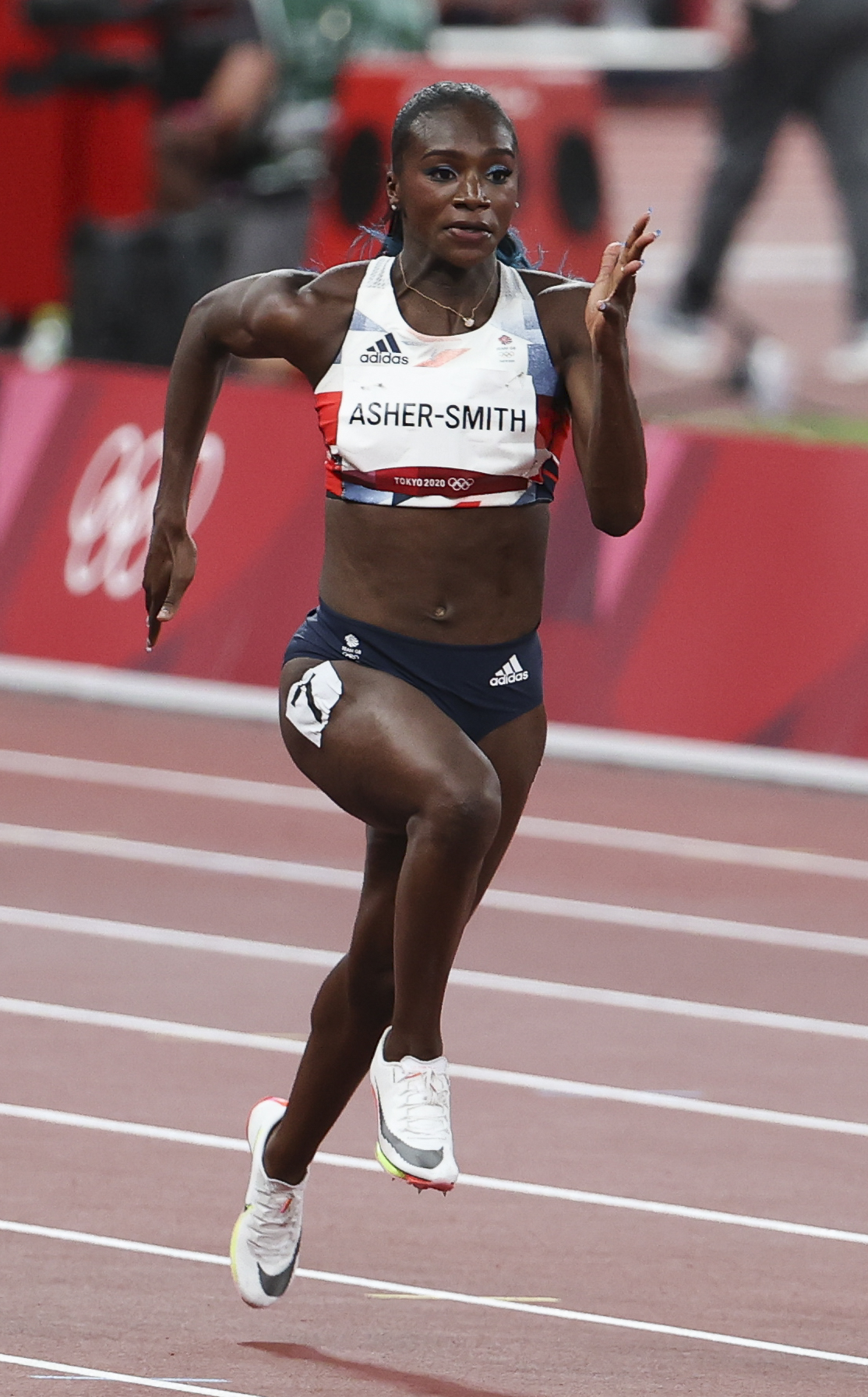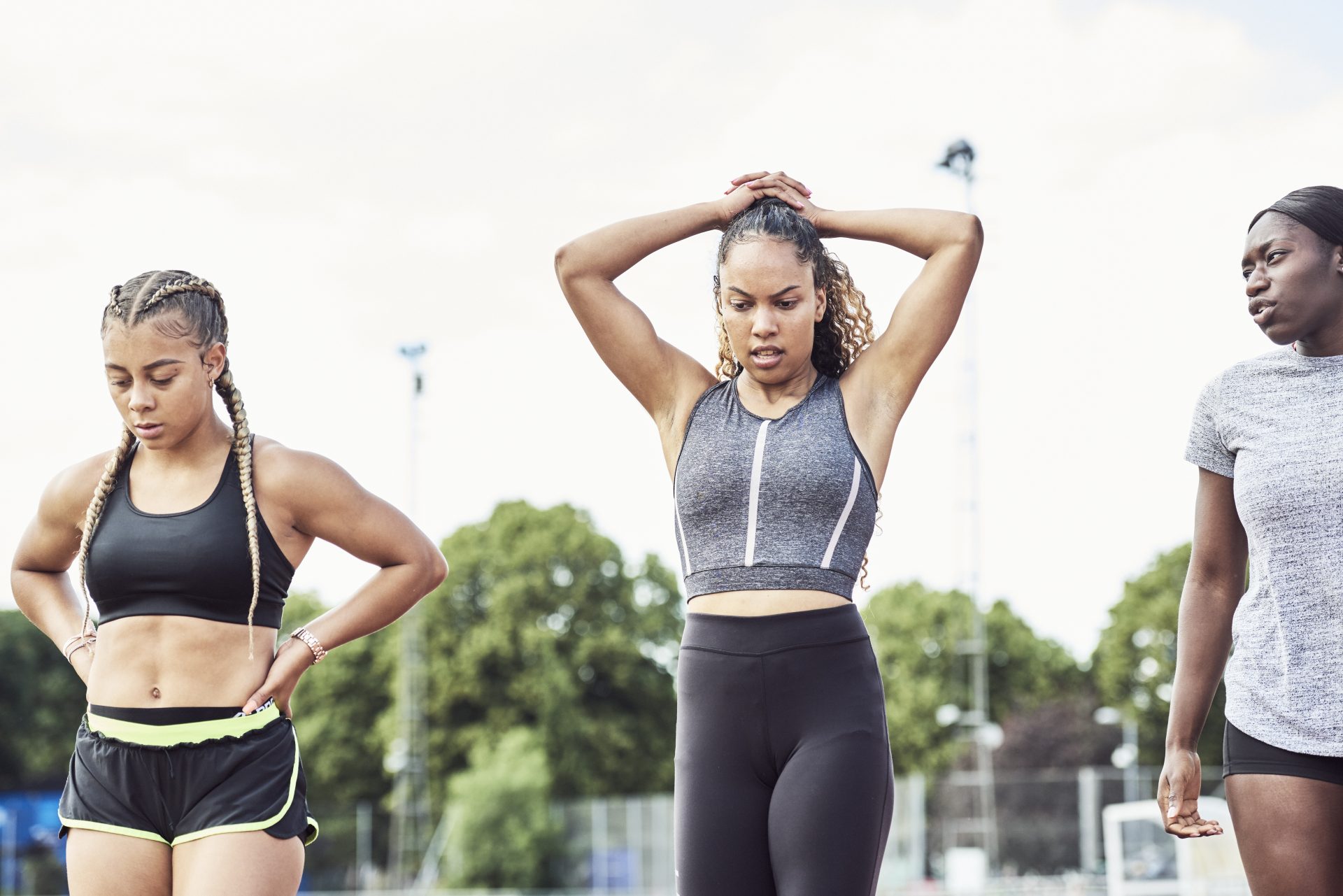If I asked you to think of an athlete, who would you picture? For many of us the word spurs images of Dina Asher-Smith or Jessica Ennis-Hill standing on a burnt orange rubber track in Lycra hot pants and a top emblazoned with the Union Jack. It is someone world-class, competitive and professional. But more and more, the word athlete is sneaking into everyday fitness vernacular. Recreational exercisers, those who run or hit the gym in their spare time, are being described as athletes by experts, brands and even themselves.
Take Gymshark, the biggest growing activewear brand in the UK. They call their sponsored influencers ‘athletes’ – perhaps beginning back when they were associated in the competitive bodybuilding world. Now, their affiliates are more part of the general fitness world, yet they are still referred to as athletes.
You may also like
Whitney Simmons was the picture of health – then she was diagnosed with mental illnesses
What impact does the democratisation of the term ‘athlete’ have on women and their relationship with exercise? In my experience, most women seem reluctant to call themselves an athlete, despite many of them being regular gym-goers or even marathon runners. Many of us still see athletes as professionals (as in, it’s their career), competitive, and/or in peak physical condition.
All exercisers are athletes
One such woman is Ashleigh Nelson, Team GB hurdler and multiple Olympic medal holder. I assumed she’d be protective of the word athlete – after all, she’s dedicated her life to being one. But, actually, she encourages all women who move to think of themselves as athletes – and runs a training group called The Athlete Method.
“I believe that if you use your body, you can be an athlete,” she says. “I like it because it’s a reminder that we all start somewhere. I started believing I was an athlete when I was 12, competing in school championships, so I think it’s about trying your best at the level you’re at. When I run at the world championships, I’m trying my best. If you’re running at the park on a Saturday, you’re trying your best. It doesn’t mean that we’re exactly the same, but that your sport matters to you and your body.”

Her co-founder Kerry Dixon, an ex-professional sprinter, also sees an athlete as someone who is pushing themselves. “The definition of an athlete I believe in is somebody that trains to push the physical capabilities of themselves. In that sense, we help people channel their inner athlete by way of being consistent with training, progressing in their workouts, and being dedicated rather than opting for a quick fix or a fad,” she says. “I don’t train to compete anymore, but I still apply the same principles to my training, and still consider myself an athlete.”
Supporting athletic bodies
This ‘purpose’ is echoed by Dr Stacy Sims, a researcher in female physiology. “The only thing that separates an “athlete” from someone who regularly works out, exercises, or otherwise pursues physically active endeavours is competition… If you exercise on purpose, you are an athlete,” she writes on her blog. It’s not surprising she thinks this – her work is focused on supporting female hormones through the impact of high-intensity training which is performed by both ‘athletes’ and regular exercisers alike.
You may also like
Exercise and your period: how to maximise your workout according to your hormones
This is also why Renee McGregor, sports nutritionist and author of The Female Athlete, uses the word. “I do that because I would worry about not calling someone an athlete and then them not taking nutrition, recovery, injury or illness seriously enough,” she says.
Given the huge increase in fitness as a serious hobby, there are more and more people spending their downtime working their body to extreme lengths. But the other stuff – the recovery, the nutrition, the hormonal monitoring – doesn’t get the same press as the workouts themselves. The fitness industry seems to have cherry-picked the interesting parts of sport and forgotten about the other things – and it’s led to an increase in things such as amenorrhea and relative energy deficiency (RED-S).
However, hypervigilance isn’t going to create a good relationship with exercise or food, especially for those who also balance a life outside of their sport. Most of us hit the gym alongside full-time jobs, families, social commitments and other hobbies. Nelson, on the other hand, gets paid to train, recover and feed her body to compete. Even Instagram athletes get the financial incentive to make their workout their focus of the day.
“If you wake up to dedicate yourself to being your physical best, you have the time and resources you need to focus on those elements because that is what’s going to set you apart from the crowd,” Dixon points out. She doesn’t believe that everyone should give up the rest of their life to focus on improving their training, but she does believe we can “adjust the intensity of that focus depending on who you are and what type of athlete you are.”
Recreational athletes
It’s why McGregor believes in different tiers of athleticism. She likes to distinguish between people who are professional or elite athletes and competitive or recreational athletes, the latter of which “has got a job and a family but in their spare time likes to compete, whether it’s against themselves or against others.”
She’s also keen to point out the difference between movement, exercise and training. “We should all be moving for our health – that’s getting outside and walking in the fresh air or doing some yoga or stretching at lunchtime. Exercise, I think, is what people do when they want to improve their health metrics. Maybe they sign up to a Zumba class or go spinning a couple of times a week – they’re working hard, but there’s no competitiveness to it.
You may also like
RED-S census: tackling the gap between fitness and hormonal health
“Training, on the other hand, is where I put people as athletes. When you engage with a training programme, whether that’s off the shelf, with a coach or something you put together in your mind, you’re looking for progress. You need an athlete mentality to plan that into your lifestyle and support your output,” she says.
For Liv, a keen runner who has completed half marathons, the word ‘athlete’ still feels too pressurised. “I am starting to have more consideration for my workout in terms of recovery and mobility work as I am meant to run the marathon this year. But I steer clear of thinking too much about nutrition as I just end up stressing too much,” she says. “I would still say the professionals running are the athletes and I’m just someone doing it for ‘fun’.”

Meanwhile, cheerleader Tiffany Price likes the term, despite sport not being her full-time job. “The balance can be quite hard, hence why I can’t be an ‘athlete’ full time. Knowing when I need to go hard in my training vs taking it steady can be very difficult. But when it’s coming up to competitions and training is upped, things like fueling my body right definitely become more of a priority to make sure I’m at my best performance. But then when training is just regular and we aren’t running up to competitions I tend to be more relaxed,” she says.
Perhaps our reaction to the word says a lot about our relationship with fitness and our bodies. So many people see athleticism as a certain look, speed or strength – meaning they don’t relate to it because they aren’t as lean or powerful as the women we see on screen. But, for those who care enough about their workouts to be chasing progression, maybe we could benefit from taking the attitudes of athletes into consideration. You may not want to call yourself an athlete, but widening the definition might be a good way to diversify our thoughts about who exercise is for and change how we look after our bodies, as well as work them.
For exclusive fitness tips and articles, visit the Strong Women Training Club.
Images: Getty
Source: Read Full Article
